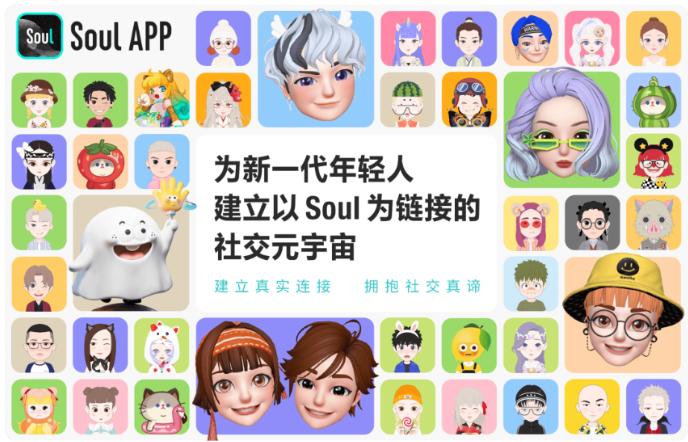The social metaverse is one of the most discussed topics in 2022. Industry insiders are curious to know how to implement the concept of social metaverse to practical application. In China, Soul App a social networking product seems to provide an answer. Targeting to build a social metaverse for young generations, this app has achieved a huge popularity among Chinese young generations.
In nature, the concept of metaverse first appeared in the science fiction novel in 1992. In Snow Crash, author Neal Stephenson presents a surreal virtual realm called the metaverse. In this parallel space, people converse and exist in virtual identities. Sci-fi imaginations have progressively become a reality in just 30 years, thanks to the rapid growth of digital technology. Global market players have now invested in the metaverse craze and are actively investigating its application scenarios.
Big tech giants like Meta, Microsoft, Nvidia, Apple, and Alphabet are actively shaping the metaverse. The most obvious examples are Facebook’s rebranding of Meta, which cements its desire to become a leader in this sector, Microsoft’s interest in acquiring Activision Blizzard, Sony’s PlayStation VR2 headset, and Apple’s possible debut into AR.
Soul App, aiming to build a social metaverse for young generations, is definitely a dark horse in the market of online social networking products. This platform currently has a DAU base of 9.3 million people and is one of the most popular social networking apps among youths.
In fact, Soul App CEO and founder, Zhang Lu, planned to construct a social metaverse for millennial generations in early 2021, half a year before Facebook renamed to Meta. Later, Soul App is dedicated to exploring the development of social metaverse.
It is widely agreed that immersive visual effects, diversified social interactions, and a decentralized and distributed organizational structure characterize a perfect metaverse experience. In virtual identity, people can communicate and trade freely.
On Soul App, an immersive social experience is provided to users with their crafted unique avatars. Avatars brings them authentic virtual identities, which is the basis of their virtual but authentic social connection experience. After participating an personality quiz, users can travel to different planets where other peers sharing the same interests are waiting.
The avatar-centred and interest-based product design of Soul App fosters the birth of a pressure-free playground where young generations love to gather, express, communicate and connect. As a result, a warm judgement-free ecology is formed at Soul App, which stimulates the content creation and growth of DAU.
Catering to young generation’s needs, Soul App has also designed a series of gamified features. For instance, users can host their own audio virtual party where they can interact and communicate with others who come from different culture and background. Soul Cam is a creative tool with fantastic camera filters for users to snap every fun and meaningful moment.
Thanks to its warm UGC ecology, Soul App also shows a strong potential in commercial growth. A recent McKinsey research showed that 79% of respondents claimed they had purchased products in the metaverse platforms and apps, with 47% purchasing items in-game, 37% purchasing virtual cosmetics, and 33% purchasing real-world commodities through virtual platforms.
On Soul App, a large number of users have purchased well-designed avatars, which are usually regarded as the passport to metaverse. According to the recent public statistics, over 80 official designers have created and traded 23,000 avatars on Soul App.
At the same time, NFTs are also growing rapidly on Soul App. An NFT collection of Zodiac cards for Game for Peace, a popular smartphone game similar to PUBG was previously launched as a result of a collaboration between Soul App and the game developer. During the campaign, about 30 million cards were distributed, and over 600 million people were exposed to the campaign as a whole. This advertising enticed millions of users to play Game for Peace.
Currently, Soul App is also working hard to establish a reliable platform for incubating these new types of economy by providing advanced tools to young content producers, promoting newcomers with incentive schemes, and establishing stronger regulations for exchanging virtual products.
Young people are enthusiastic about the metaverse and are willing to pay for virtual activities such as socializing or gaming. Soul App captures the essence of both by incorporating gamified interactions into social connection and serves as a model for capitalizing in the social metaverse.

